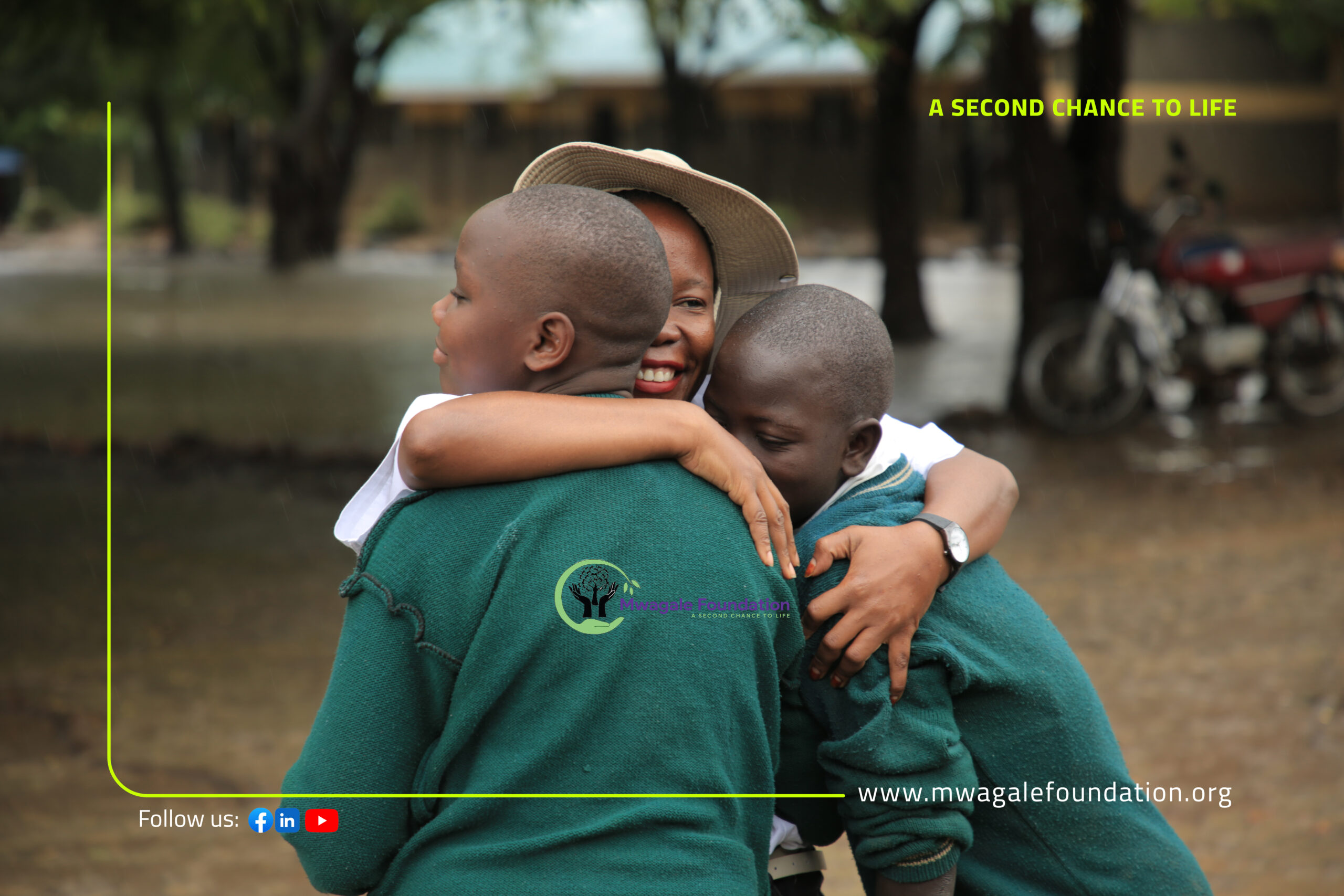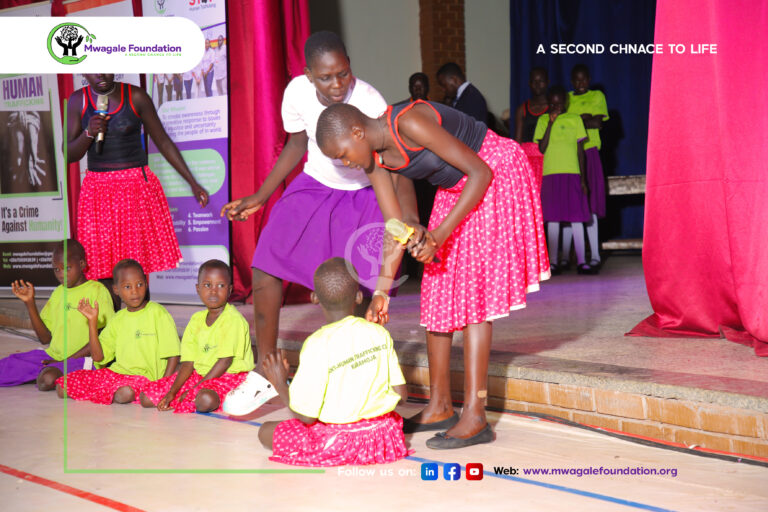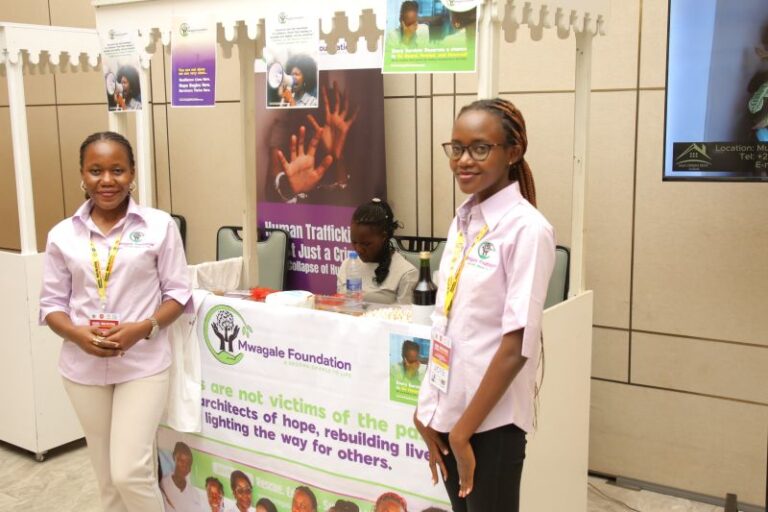Human Trafficking: Awareness in Uganda
Human Trafficking (Awareness in Uganda)
A boda driver in Kampala noticed a teenage girl riding with a stranger late at night. She looked scared, carried no bag, and avoided eye contact. He called a local helpline, and police intercepted the bus before the border. Quiet acts like his save lives every week.
Human trafficking hides in plain sight in Uganda, in cities and along rural roads. Survivors include children promised school, teens offered fake jobs, and adults trapped by debt. Human trafficking awareness is the first shield, it helps you spot red flags early and respond safely.
If you are a volunteer, your presence already matters. This guide will show you clear signs to watch for, how to talk with care, and safe ways to report concerns. You will learn where cases happen, who is most at risk, and why traffickers target certain routes and hubs.
We will cover trusted hotlines and partners, a simple safety plan, and do’s and don’ts that protect you and the survivor. You will get quick scripts for starting sensitive conversations, plus steps to document and hand off information without harm. You will also see how to support aftercare with dignity.
You do not need special gear or status to help. You need sharp eyes, calm words, and a plan. Read on to build that plan, connect with the right networks, and take action that counts.
Your role can be small and still be life changing. Stay curious, stay kind, and stay alert. Uganda needs more people who know what to notice and what to do next.
What Is Human Trafficking in Uganda and Why It Matters
Human trafficking is the exploitation of people through force, fraud, or pressure for profit. In Uganda, it shows up as sex trafficking, labor exploitation on farms and fishing sites, domestic servitude in homes, and in some cases, the recruitment of children into armed groups across borders. It affects thousands each year, with many cases in rural districts, transit hubs, and border regions where movement is high and oversight is weak.
Why does this matter for you as a volunteer? Strong human trafficking awareness helps you notice risk early, ask safe questions, and report concerns in time. One careful observation can stop a bus ride, a fake job offer, or a forced marriage. Your voice can be the first call that saves a child or adult from harm.
Common Forms of Trafficking in Uganda
Trafficking looks different from place to place. Knowing the main forms helps you match signs to action.
- Forced labor in fishing or farms: Men and boys are pushed onto boats on Lake Victoria or into farm work with false promises. Wages are withheld, debts grow, and movement is controlled. Look for workers who sleep on site, cannot keep their pay, or seem watched by a handler.
- Sex exploitation in urban centers: Kampala, Gulu, Jinja, and border towns see high recruitment for prostitution and escort work. Girls and young women are targeted with job ads for bars, salons, or lodges, then trapped with threats or debt. Some are moved at night between venues to avoid notice.
- Domestic servitude: Young girls are sent to homes in cities as “house help,” then denied school, pay, or freedom to leave. Phones and IDs may be taken. Many work long hours with no rest or contact with family.
- Early marriage of girls: Families under pressure may accept bride price, which traffickers use to force a quick marriage. The girl loses school and control over movement, and faces sexual and labor exploitation.
- Child recruitment into armed groups: Reports from the region show children lured or moved across borders into fighting, spying, or carrying supplies. This is trafficking when consent is not real and escape is blocked.
Tips to recognize red flags in your community:
- Isolated workers: No phone, no days off, always under watch.
- Unexplained injuries: Burns, cuts, or bruises with unclear stories.
- Confiscated documents: No access to ID, phone, or money.
- Scripted answers: Rehearsed details about work or travel.
- Control by another person: Someone speaks for them or refuses privacy.
- Sudden relocations: Night travel, frequent moves, hidden sleeping areas.
- Promises that feel too good: High pay with no contract or training.
If several signs appear at once, pause and seek guidance. Do not confront a suspected trafficker. Your safety matters too.
Who Is Most at Risk in Uganda
Some people face higher risk due to money pressure, limited choices, or weak protection. Focus your prevention efforts here.
- Children from poor families: School costs push kids into “work to help.” Recruiters promise fees, food, or travel, then trap them. Dropping out of school increases risk fast.
- Refugees and migrants: People moving from neighboring countries may lack papers and support. Smugglers can switch to traffickers, especially near borders and transit hubs.
- Women and girls in conflict or high-crime areas: Instability breaks safety nets. Early marriage, sexual abuse, and displacement make recruitment easier.
- Street-connected children: They sleep rough, accept quick jobs, and depend on strangers for food. That makes them easy targets.
- Young job seekers: Teens lured by city work or overseas offers with no contracts or fees up front.
Why these groups face higher risk:
- Poverty limits choices and makes fake offers feel safe.
- Lack of education reduces awareness of rights, contracts, and safe travel.
- Weak law enforcement in remote areas allows traffickers to move people quietly.
- Social pressure around marriage and bride price can mask exploitation as tradition.
- Online recruitment uses social media to hide lies behind friendly profiles.
Use human trafficking awareness to guide your outreach:
- Spend time in schools, markets, bus parks, and border queues with simple safety messages.
- Share how to verify jobs, keep copies of documents, and contact trusted hotlines.
- Work with local leaders, faith groups, and refugee services so referrals move fast.
- Offer safe ways to report concerns without naming the survivor in public settings.
Targeting help to these groups reduces risk where it matters most. Small actions, repeated often, prevent harm before it starts.
Key Efforts and Challenges in Fighting Human Trafficking
Uganda has made strong moves against trafficking, yet gaps remain on the ground. As a volunteer, you help turn policy into real protection. Use human trafficking awareness to connect people to help faster, calm fear, and keep pressure on traffickers.
Government and NGO Initiatives
Uganda’s legal and policy framework has grown stronger. The Prevention of Trafficking in Persons Act, 2009 (often called the Anti-Trafficking Act), guides arrests, prosecutions, and survivor care. The Ministry of Internal Affairs, through the Coordination Office for Prevention of Trafficking in Persons (COPTIP), leads national action, training, and data sharing.
What this looks like in practice:
- Victim support centers and one-stop services: Police Child and Family Protection Units, health-based one-stop centers, and probation offices coordinate emergency care, medical support, and safe shelter referrals.
- Border monitoring: Joint operations with immigration and police at Entebbe, Busia, Malaba, and Elegu check documents, flag suspicious travel, and refer high-risk travelers to screening.
- International partnerships: Uganda partners with UNICEF, IOM, and Interpol for training, cross-border case referrals, and safe returns. These links help stop movements before victims disappear.
- NGO leadership: World Vision, Rahab Uganda, Dwelling Places, Willow International, and others run awareness campaigns in schools and churches, provide shelters, offer trauma care, and support reintegration with vocational training.
Recent wins show what works:
- More investigations and convictions after specialized training for police and prosecutors.
- Rescue operations that intercept buses and private vans after hotline tips.
- Public awareness drives that cut recruitment through fake job ads and sham “house help” offers.
Where volunteers fit:
- Share verified hotlines and service contacts in markets, schools, and bus parks.
- Join NGO outreach days to help with screening, translation, or simple data collection.
- Report patterns you see, not just single cases, so partners can plan better patrols.
Keep your focus on human trafficking awareness. Clear messages, shared often, turn bystanders into early responders.
Community and Local Challenges
Progress at the national level meets real hurdles in villages and towns. Some cultural norms still normalize child labor during harvests, or accept early marriage to reduce family costs. Survivors face stigma, so many keep silent or return to unsafe work. In remote areas, services are far away, transport is costly, and phone networks are weak.
Common barriers you will see:
- Normalization of risk: Seasonal work for children feels “normal,” which hides exploitation.
- Shame and fear: Survivors may fear blame, arrest, or being sent back to abusers.
- Low service access: No nearby shelter, legal aid, or trauma care, especially off main roads.
- Misinformation: Fake recruiters use social media and WhatsApp to sell “jobs abroad.”
How volunteers can bridge the gap:
- Run local workshops with teachers, boda leaders, and faith groups on safe jobs, safe travel, and rights. Short talks before market day work well.
- Share simple tools: pocket referral cards, hotline numbers, and a checklist to verify job offers.
- Use radio spots and community drama to reach places without stable internet.
- Support youth clubs to spot red flags online and report unsafe contacts.
- Arrange escort networks for at-risk travelers, like girls heading to towns for work.
Stay at it. One-off events fade fast. Plan monthly activities, repeat key points, and track referrals. When the same messages reach people in schools, bus parks, and churches, they stick. That is how human trafficking awareness shifts local norms and keeps more people safe.
How Volunteers Can Help Stop Human Trafficking Today
You do not need a title or budget to protect people. With smart human trafficking awareness, you can teach safe choices, support survivors, and push leaders to act. Start where you live, use simple tools, and plug into trusted partners across Uganda.

Photo by Ron Lach
Raising Human Trafficking Awareness in Your Community
Workshops, school talks, and social posts spread safety faster than rumor. Keep messages simple, practical, and local.
How to host quick, useful workshops:
- Pick common-risk topics: fake job offers, travel safety, and spotting control tactics.
- Use short formats: 30 to 45 minutes at churches, market days, youth clubs, or SACCOS.
- Bring simple tools: posters, hotline cards, and a one-page checklist to verify jobs.
- Share survivor stories with consent. If none are available, use anonymized case summaries from NGOs.
- End with clear next steps: who to call, what to collect, where to go.
Social media that educates, not scares:
- Post weekly tips on WhatsApp or Facebook with one clear action.
- Use plain images and short captions. Example: “Keep your ID copy. Share travel plans with a trusted adult.”
- Report fake job ads to admins and platform reporting tools.
Partner with schools to reach kids early:
- Offer 20-minute class talks on safe travel, online red flags, and consent.
- Train peer leaders to spot risk and refer quietly to teachers or counselors.
- Leave behind kid-friendly posters with helplines and safe adults to contact.
Why this builds stronger networks:
- People remember short, repeated messages.
- Shared tools like posters and scripts make it easy to teach others.
- A visible group of informed neighbors becomes a quick-response network.
Safety tip: Never name suspected traffickers in public meetings. Share patterns, not identities.
Supporting Victims and Prevention Work
Direct support and smart prevention save time, money, and lives. Offer your hands, your skills, or both.
Where to volunteer:
- Rehab and shelter centers: help with meals, tutoring, childcare, transport to clinics, or admin tasks.
- Hotlines and help desks: assist with documentation, translation, or data entry after training.
- Community clinics: support intake forms, referral tracking, and follow-up calls after consent.
Donate skills that matter:
- Counseling or psychosocial care if certified, or assist qualified staff with group activities.
- Legal aid support such as form filling, court date reminders, and safe accompaniment.
- Comms and tech: manage social pages, design posters, or set up simple survey tools.
Prevention through stability:
- Join economic aid programs: support savings groups, vocational training, and school fee drives.
- Help youths build CVs, verify contracts, and practice safe interview steps.
- Support refugee and migrant services that provide documentation and safe travel checks.
Ethical involvement, always:
- Respect privacy. No photos, no names, no online posts about survivors.
- Get informed consent before any referral or data collection.
- Follow do-no-harm rules. If a step increases risk, pause and seek guidance.
Quick safety checklist for volunteers:
- Meet in public spaces or partner offices.
- Do not confront suspected traffickers.
- Use official channels for reporting. In Uganda, call Police on 999 or 112 for emergencies.
Trusted Uganda partners to contact:
- Uganda Police Child and Family Protection Unit, district offices.
- COPTIP at the Ministry of Internal Affairs, for case coordination.
- NGOs: Rahab Uganda, Willow International, Dwelling Places, UYDEL, IOM Uganda, World Vision Uganda.
Advocating for Stronger Laws and Funding
Policy and budgets decide who gets help and how fast. Your voice adds weight when it is clear and consistent.
Start with simple actions:
- Write short letters to your MP and district leaders asking for more funding for shelters, trained investigators, and border screening.
- Sign and share campaign petitions from respected Ugandan NGOs.
- Host a small fundraiser for a local shelter or hotline, then share outcomes with donors.
Make messages that work:
- Lead with local impact. “In our district, teens are lured by fake salon jobs. We need trained officers and safe housing.”
- Ask for one to three specific actions. Example: “Budget for a survivor shelter, train 20 officers, print hotline posters.”
- Use human trafficking awareness stats or patterns you have observed, not rumors.
- Keep it short, polite, and persistent. Follow up after two weeks.
Where to plug in across Uganda:
- Contact COPTIP for national action plans and training schedules.
- Join NGO coalitions through Willow International, Rahab Uganda, or UYDEL for joint campaigns.
- Coordinate with District Probation Officers to support survivor services and case referrals.
Fundraising ideas that travel well:
- Community sports day with entry fees that buy shelter supplies.
- “Safe Travel” kit drive for ID copies, airtime, power banks, and fare for safe returns.
- Radio talk show slots sponsored by local businesses to share key safety tips.
Advocacy safety tip:
- Avoid naming active cases or sharing sensitive details.
- Share needs, trends, and solutions, not blame.
When more people push for resources, train officers, and share clear information, traffickers lose ground. Use your time, your voice, and your network. That is how human trafficking awareness turns into action that protects lives.
Conclusion
Human trafficking awareness turns everyday moments into protection. You learned the core signs, safe ways to respond, and how to link survivors to help without causing harm. You also saw where cases surface in Uganda, which groups face higher risk, and which partners move fastest when a tip comes in.
Change grows when many people repeat simple actions. Share hotline numbers, teach safe travel steps, and report patterns you notice. Support shelters, join outreach days, and back local leaders who fund services. Each action makes recruiting harder and escape easier.
Take one step today. Sign up with a trusted local program like Rahab Uganda, Willow International, or UYDEL. Save Police emergency numbers 999 and 112, then post them at your church, school, or shop. Print or request referral cards and keep them in your bag.
Progress is real when communities act together. More trained officers, stronger NGO networks, and steady volunteer support are saving lives. Keep your eyes open, your words calm, and your plan ready. Uganda gets safer when people like you show up, again and again.




